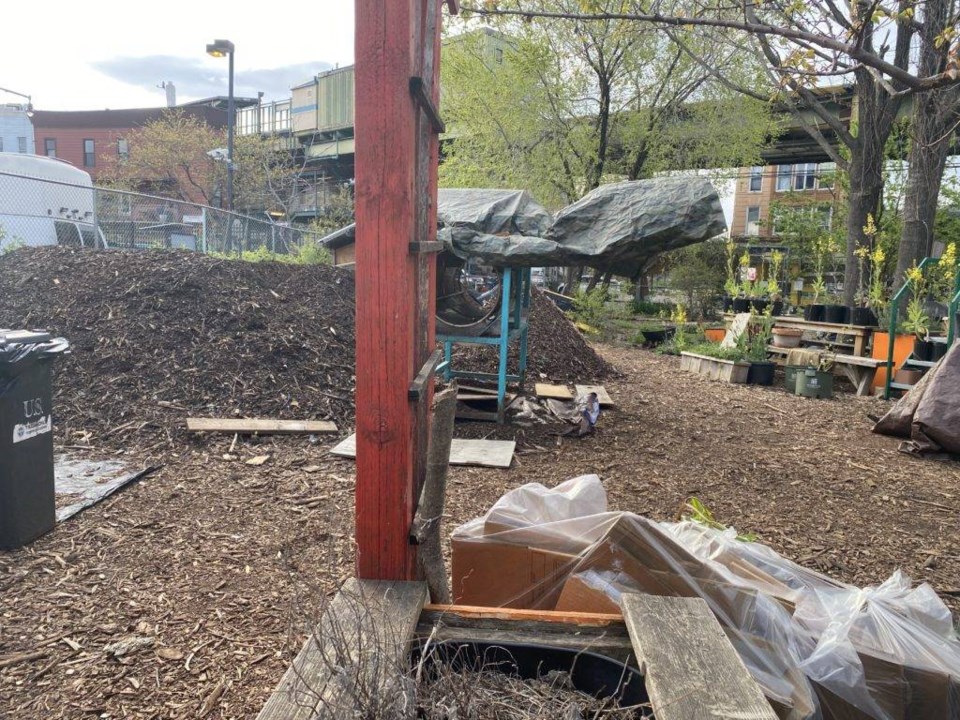Curbside composting is set to return to New York City.
Mayor Bill de Blasio announced Thursday — coinciding with Earth Day — that the program would be relaunched and expanded to serve more than 3.5 million New Yorkers, after it was cut from last year's budget.
Those who previously had access to curbside collection will be able to voluntarily opt-in in August to receive free weekly composting, which will start in October.
The mayor said in a press release plans included significant expansions of community composting, reuse and hazardous waste disposal programs, including an expansion of the Food Scrap Drop-Off program. Community based sites will be increased from 100 to 200 this fall.

To fund the program, GrowNYC's Greenmarket Composting budget will be restored and there will be an expansion of NYC Compost Project funding to support community-based drop-offs, composting and education, the release said.
The city will also pilot "smart bins," where New Yorkers can use an app to access public food scrap drop-off bins, and it will relaunch the School Curbside Composting service.
De Blasio said although the announcement came on Earth Day, the City's commitment to sustainability was year-round.
"No other municipality ran a compost program like ours, and this new citywide program will advance the cause of environmental justice in all five boroughs."
However, City Councilmember and Chair of the Committee on Sanitation and Solid Waste Management Antonio Reynoso said the mayor's plan was "the very opposite of environmental justice."
"The program not only falls short in scope, but is one of the most inherently inequitable proposals the Mayor has announced to date," he said.
"This measure will divert millions of dollars to the wealthiest communities and reinforce the already existing environmental racism in Black, brown, and low-income communities."
He questioned the doubling of Food Scrap Drop-Off locations when there was no stated increase of processing sites, saying site operators were already nearing capacity and two mid-scale community compost processing sites -- Big Reuse & LES Ecology Center -- were facing eviction by the City.
"The announcement fails to deal with this most immediate crisis in city composting, which is the Parks' Department's inexplicable decision to dislodge these beloved community composting non-profits, even as the amount of food scraps being processed by them sets new records."
Of critical importance, he said, was understanding where food scraps were taken after they were collected, adding that they should not end up in landfills and incinerators in "environmental justice locations."
He said there should have been engagement with the numerous environmental justice organizations, "that have been fighting for years to secure an equitable, citywide compost program."
"We need the mayor to fully fund and expand a well-constructed mandatory compost program citywide — so all New Yorkers have access to participate."
However, a number of other city council members were on board with the mayor's plan. Councilmember Farah Louis, who represents Flatbush, said through the continuation of composting and SAFE Disposal events, the city was preserving the health and wellness of communities by minimizing the amount of waste in our landfills and air pollution.
"Sustainability is at the core of who we are as New Yorkers committed to reducing our environmental and ecological footprints," she said.
"The future of our planet depends on neighbors who compost, conserve, reuse, and recycle. I look forward to seeing our blocks lined with not only beautiful trees but brown bins working in tandem to protect our environment for future generations."
The mayor's plan includes the expansion of SAFE Disposal Events, which collect solvents, uutomotive, flammables and electronics products as well as other regulated waste. The events will go from two per borough each year — a total of 10 — to nearly 60 per year, one for each community district.
Special Waste Drop-off locations, sites around the city where residents can drop off harmful materials that do not belong in household trash, will also be re-opening starting this July. These sites have been closed since March 2020.
Finally, DSNY will begin offering Reuse Swap Events across the city to keep usable items out of landfills and help them find good homes. At these events, one person's unwanted household goods can become another's treasure, the mayor said in a press release.



